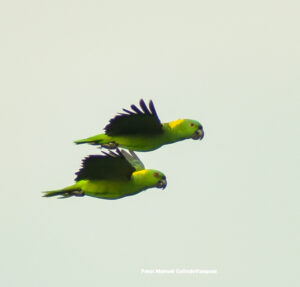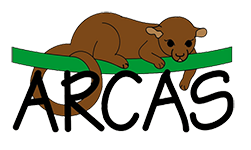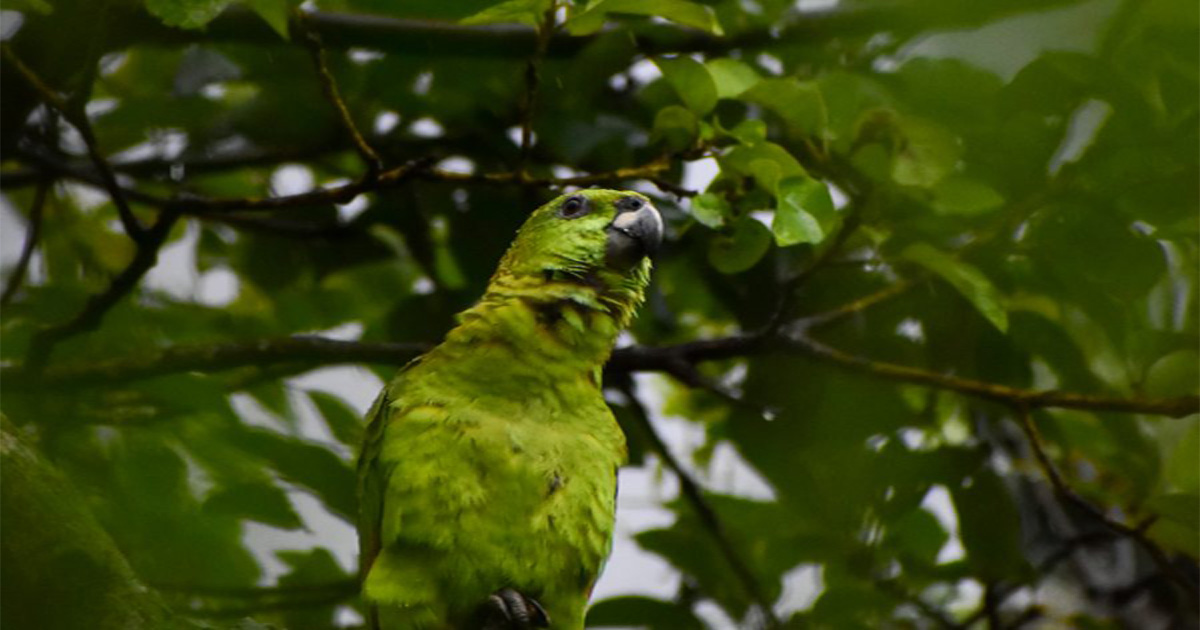The family Psittacidae, commonly known as parrots, macaws, parakeets, parrotlets, and parrotfish, are part of the biodiversity of ecosystems.
They contribute to seed dispersal and support other organisms that act as secondary dispersers, which are important in the structure and functioning of ecosystems. Globally, they are severely threatened primarily by illegal trafficking and trade (to keep them in captivity as pets) and habitat loss caused by the expansion of agricultural frontiers, forest fires, invasions, illegal logging, and the destruction of their habitat (nesting, resting, and feeding sites).
In Guatemala, approximately 6,159 species of wild animals have been recorded, including fish, reptiles, amphibians, birds, and mammals. Wildlife is the set of animals that live in a country or region and develop in a natural environment without human intervention.
The National Council of Protected Areas (CONAP), as the administrator of national biological diversity, with the support of entities and organizations with similar objectives, has implemented various actions to promote their protection, recovery, and conservation. These include control and surveillance in protected areas, inter-institutional mobile control posts on trafficking routes, in situ species monitoring, research, installation of artificial nests, habitat use evaluations, breeding, species rescue, reintroduction and release of specimens, environmental education, and involvement of local communities.
In previous years, in coordination with One Earth Conservation, the Punta de Manabique Technical Unit of the Nororiente regional office of CONAP, with the Yellow-headed Parrot Conservation Project (Amazona oratrix), has conducted training sessions for community members and young people who help protect and conserve the species. A community forest nursery has been established for reforesting forest and fruit species beneficial to the Yellow-headed Parrot (Amazona oratrix), and 10 artificial nests have been installed as a protective measure and alternative for the species’ reproduction in response to habitat loss or nesting sites.
Following up on previous work, this year has seen successful results such as monitoring, protection, and surveillance of these nests. The National Civil Police supported this effort by setting up camps within the protected area. As a result of the training provided to community members, they have also become involved in the monitoring efforts and were rewarded with financial incentives from One Earth Conservation, an important CONAP partner.
Additionally, in the southern coastal region, CONAP supports the Yellow-naped Parrot breeding plan, promoted by Colores, ARCAS, and One Earth Conservation. This plan includes nest monitoring, implementing controlled artificial nests, routine patrols, and engaging market leaders in Retalhuleu to prevent the illegal parrot trade. Colores offers the following recommendations on how to be a parrot conservationist. https://drive.google.com/file/d/1QJSyzJLfbxrHd9H9u6wJvUEmqk1XTBw1/view
In the western highlands region, significant efforts are being made to protect and conserve parrots by intensifying control posts in markets and monitoring roads and the species’ habitats.
The best way to prevent the illegal wildlife trade is not to buy or acquire wild animals as pets and to report illegal activities such as hunting, transportation, and trade. These activities reduce animal populations, and it’s important to remember that irresponsible and unconscious wild animal ownership can cause zoonotic diseases in humans.
Wild animals that are victims of illegal trafficking and trade suffer mistreatment and cruelty, as they are placed in unsuitable conditions in boxes or cages, sometimes chained and without food. We continue to emphasize the invaluable value and importance of wildlife and the need to join actions for the protection and conservation of these species in the wild and their habitats.
Report to the Public Ministry: 37568368, PNC/DIPRONA 3032-5596, and PNC/DIPRONA Escuintla 3047-1121.
Parrots are born to be free and play their role in the ecosystem; do not condemn them to a cage. Let them fly.


